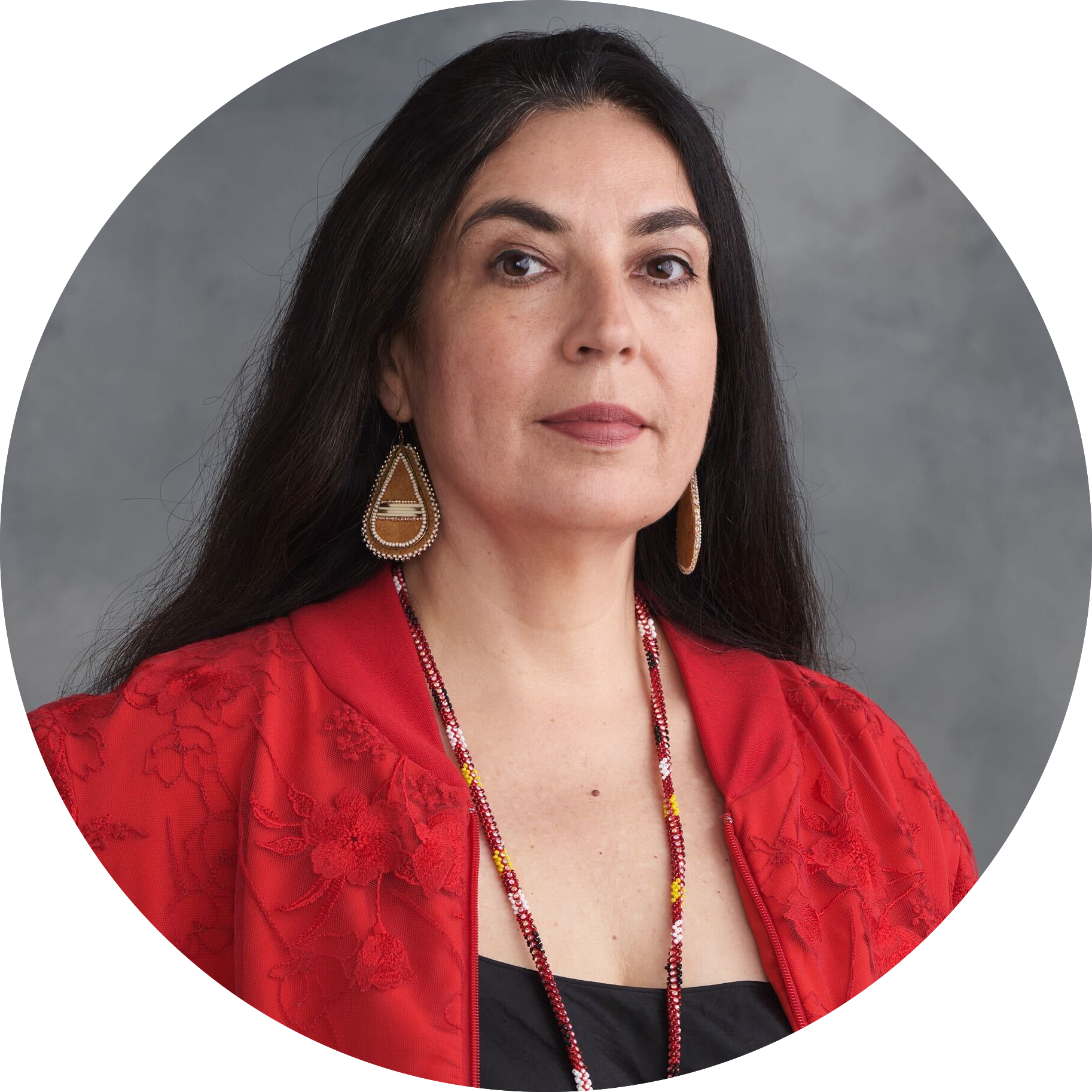
The root of the problem in northern Ontario
This story about a lawsuit involving First Nations in northern Ontario has deep roots — in...
The Narwhal has been nominated for four National Magazine Awards, which recognize excellence in Canadian journalism.
Launched less than a year ago, The Narwhal is an ad-free, non-profit online magazine focused on telling stories about Canada’s natural world. More than 1,200 readers donated to support The Narwhal’s journalism during our first year.
For this year’s National Magazine Awards, judges considered entries from 187 Canadian magazines by more than 2,000 writers, editors, photographers, illustrators and art directors. Judges selected finalists for awards in 28 categories.
The Narwhal earned three nods in the photojournalism category and a fourth for portrait photography. Three of the pieces nominated for awards are featured in The Narwhal’s first print magazine, available in very limited quantities by donation.
In the portrait photography category, Amber Bracken earned a nomination for her work photographing Alberta’s coal miners to accompany an article by reporter Sharon J. Riley, which sheds light on the lives and minds of those most deeply affected by the world’s energy transition. The piece, Life after coal, is also nominated for an award from the Canadian Association of Journalists, which will be announced this Saturday.
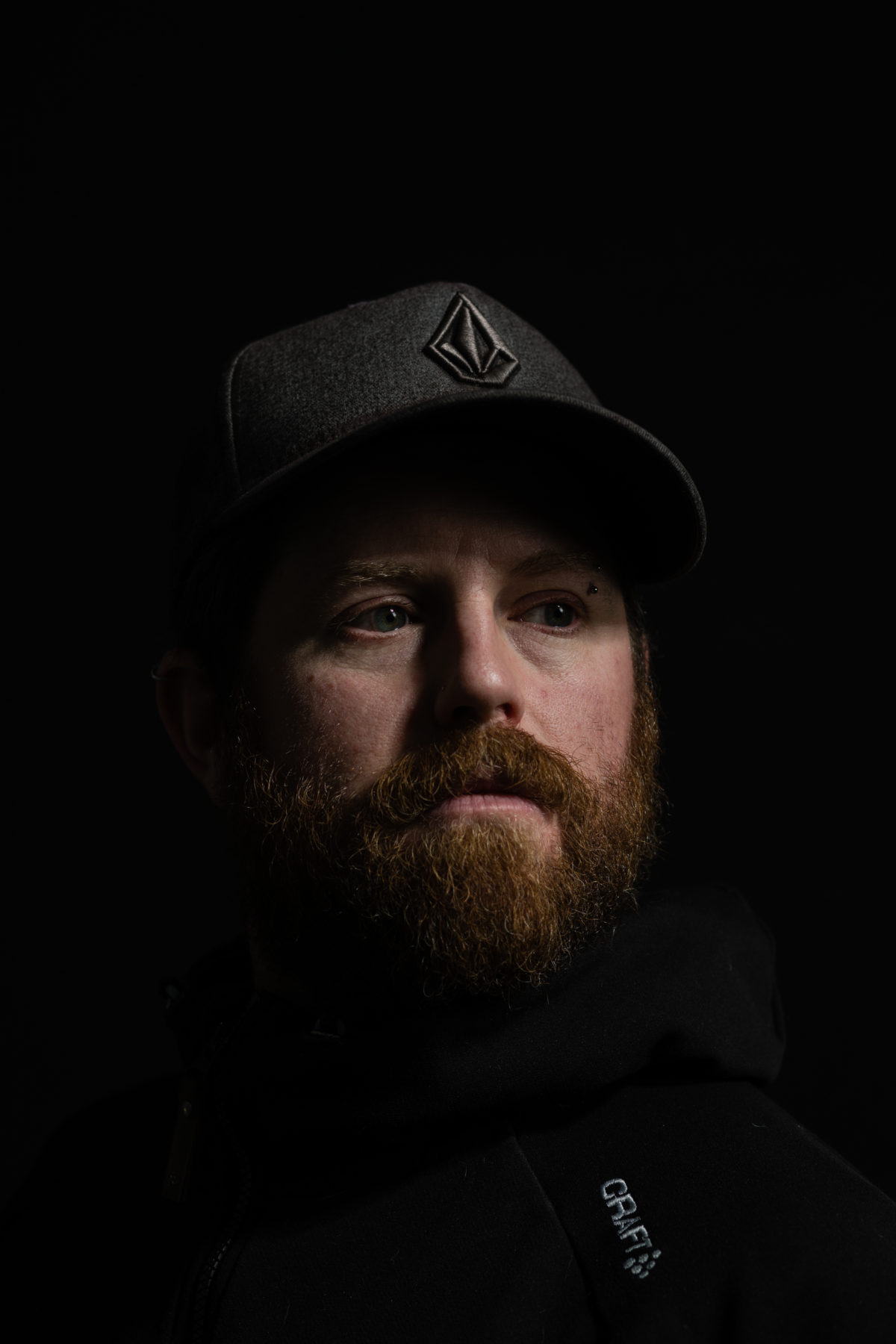
United Steelworkers Local 1595 union executive member and serviceman Len Austin. Photo: Amber Bracken / The Narwhal
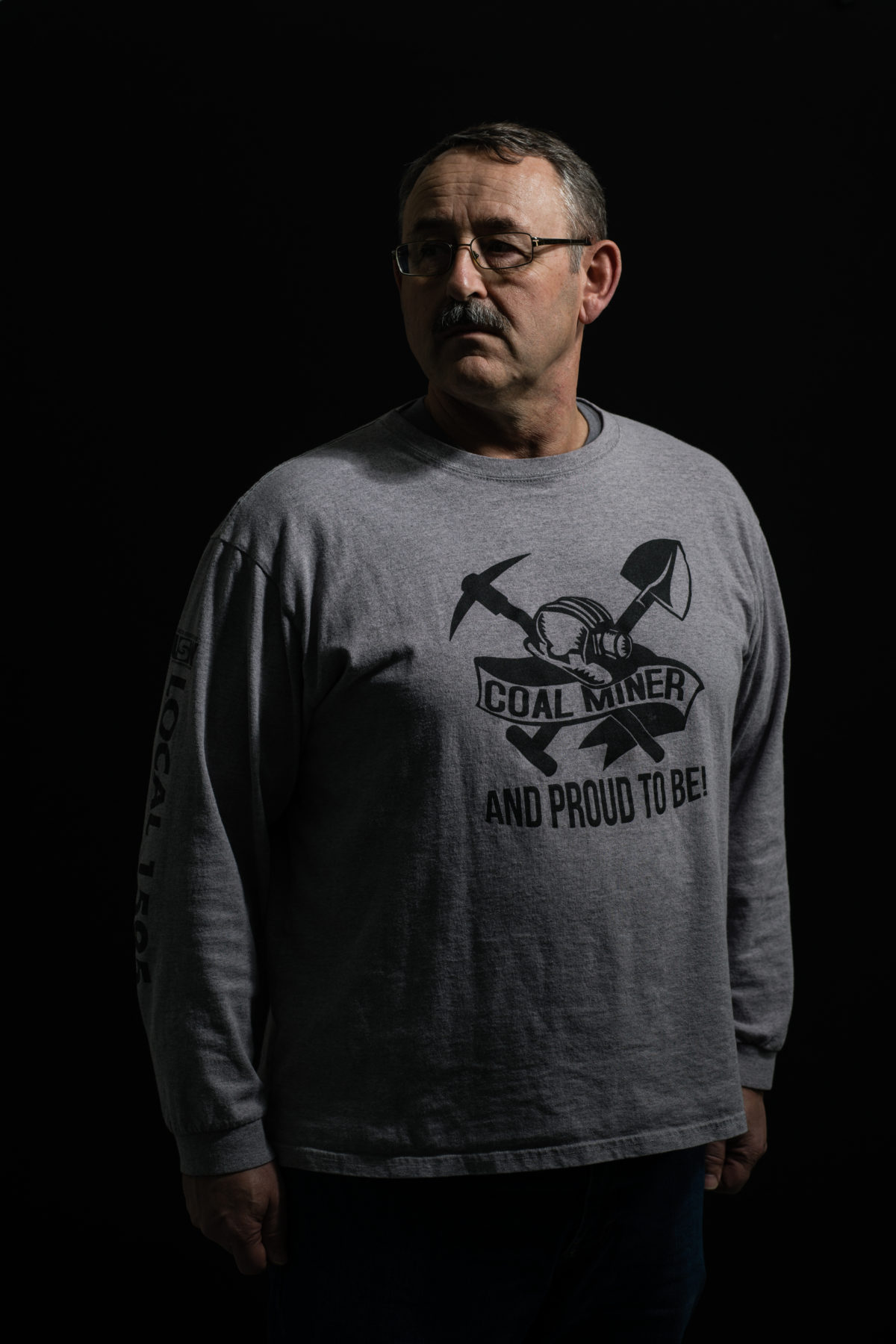
United Steelworkers Local 1595 president and coal handling plant operator Roy Milne in Wabamun, Alberta on Wednesday, November 7, 2018. Coal workers are struggling to transition to other jobs as the industry winds down. Amber Bracken for The Narwhal
Bracken is a lifelong Albertan based in Edmonton. She earned a second nomination in the portrait photography category for her work for Maclean’s, photographing the Nishnawbe-Aski Indigenous police service
.
Other finalists in the portrait photography category include Maisonneuve, Toronto Life, L’actualité and Dînette magazine.
In the photojournalism category, The Narwhal earned a nomination for Pat Kane’s photo essay on Indigenous-led conservation in the Northwest Territories. Kane’s piece showcases how Indigenous people are reconnecting with their ancestral homelands.
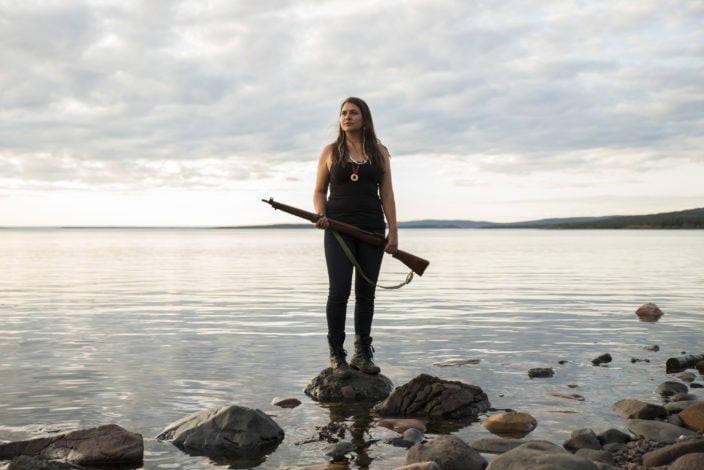
Tania Larsson stands watch on the shore of Great Slave Lake. She’s a member of Dene Nahjo, an organization of young leaders looking to advance social and environmental rights for indigenous people in the NWT. Their motto is “Land, Language and Culture Forever.” Photo: Pat Kane
The essay is also a finalist for an award from the Canadian Association of Journalists. It shines a spotlight on Indigenous Guardians programs, which are increasingly being recognized as an important conservation tool that can also help advance reconciliation with Canada’s Indigenous peoples.
“Programs like these help Indigenous communities become stewards of their ancestral lands, as land/water monitors, park rangers and environmental advisors in addition to building capacity for community-led initiatives,” Kane writes in his photo essay.
Kane is a member of the Timiskaming First Nation in Ontario/Quebec and is based in Yellowknife, where he covers people, life and culture in Canada’s North. His piece was assigned and handled by The Narwhal’s northern reporter Jimmy Thomson.
B.C.-based photographer Louis Bockner earned a nomination in the photojournalism category for his photo essay on Wood Buffalo National Park, a piece created in collaboration with Sierra Club BC, which sent Bockner to photograph the park.
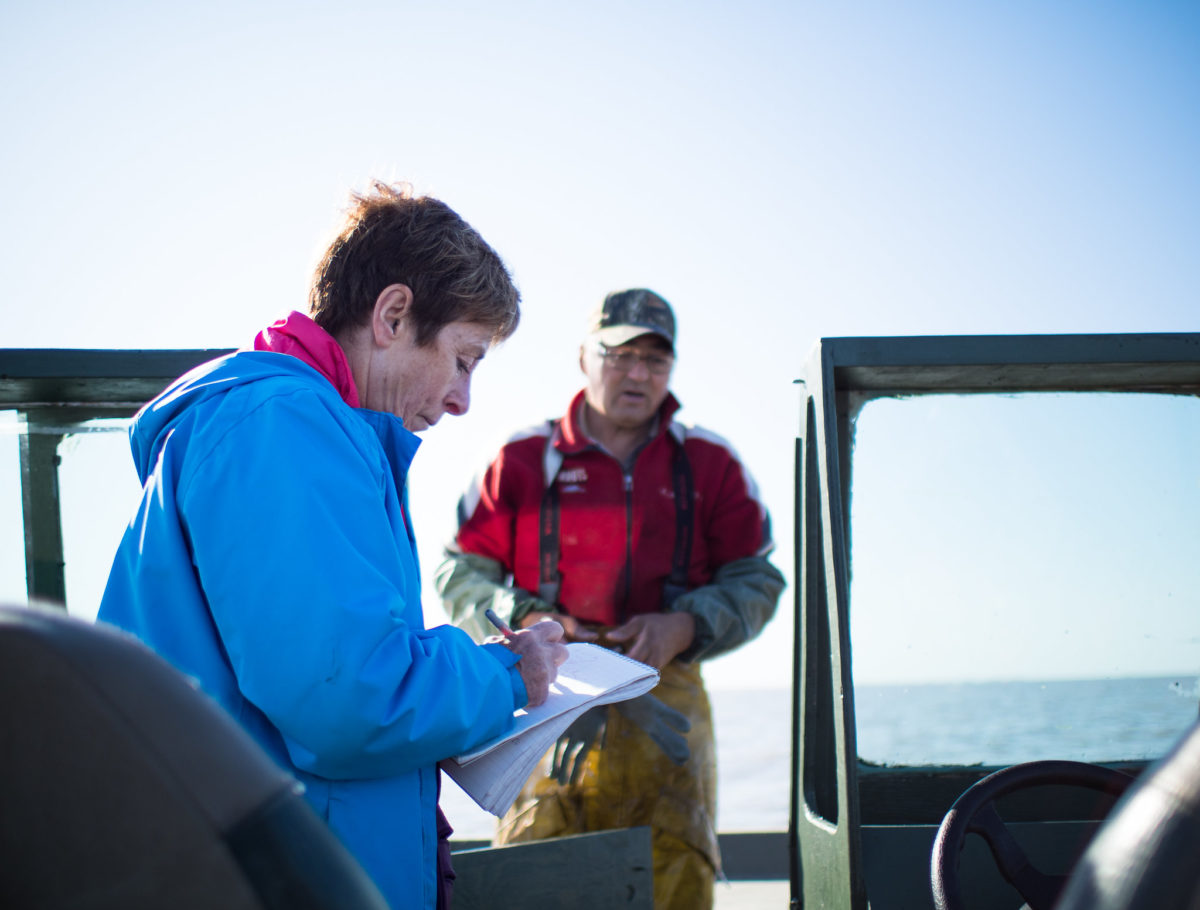
The Narwhal’s journalist Judith Lavoie interviews Mikisew Cree member Robert Grandjambe in Fort Chipewyan, Alta. Photo: Louis Bockner / The Sierra Club BC
The Narwhal sent reporter Judith Lavoie to accompany Bockner on his trip and to write the accompanying stories. Bockner has since shot several assignments for The Narwhal, including documenting flood damage in Grand Forks
and life in the wake of the Mount Polley mine disaster.
Aaron Vincent Elkaim was also named as a finalist in the photojournalism category for his photo essay on the Fort McKay First Nation’s fight to protect Moose Lake from rampant industrial development.
“Surrounded on three sides by oilsands operations, the Fort McKay First Nation has benefited tremendously from industrial development — while also experiencing firsthand its environmental consequences,” Elkaim wrote.

James Grandjambe celebrates his 92nd birthday with his sister Flora Grandjambe, left, and Chief Jim Bouchier, right, at the Fort McKay Band Hall in February, 2012. Photo: Aaron Vincent Elkaim / The Narwhal
Other finalists in the photojournalism category include Canadian Geographic, Cottage Life, Mountain Life Annual, Legion Magazine, University of Toronto Magazine and Dînette magazine.
Elkaim’s photo essay is also a finalist for an award from the Canadian Association of Journalists.
Elkaim splits his time between Toronto and Winnipeg and focuses on narratives where traditional culture and environmental degradation collide.
The awards will be announced at a gala on May 31 in Toronto.
In November, The Narwhal won four Canadian Online Publishing Awards, including silvers for best news website and best publication and gold and silver for best photojournalism.
The Narwhal’s 700+ monthly members are the lifeblood of our newsroom, providing reliable support for our reporting on the natural world that can’t be found anywhere else. Please consider becoming a monthly member of The Narwhal today. Every dollar we receive from readers like you goes straight to funding independent journalism.
Content for Apple News or Article only Get the inside scoop on The Narwhal’s environment and climate reporting by signing up for our free newsletter. This...
Continue reading
This story about a lawsuit involving First Nations in northern Ontario has deep roots — in...

At a crucial point in their research, biologists are scrambling to find new support for...

From True Detective to The Grizzlies, the Inuk actor is known for badass roles. She's...
